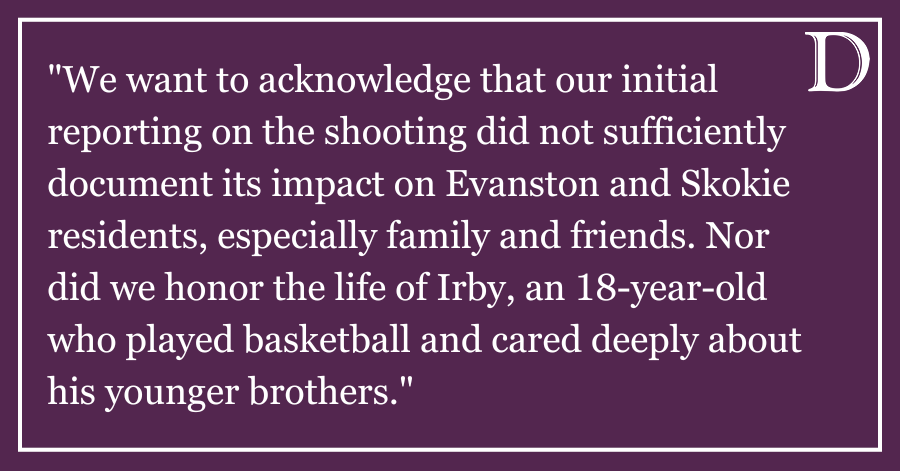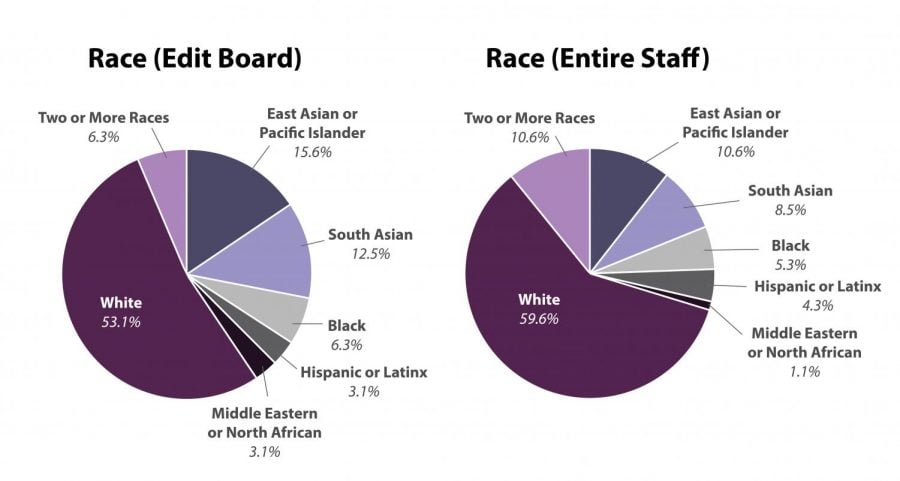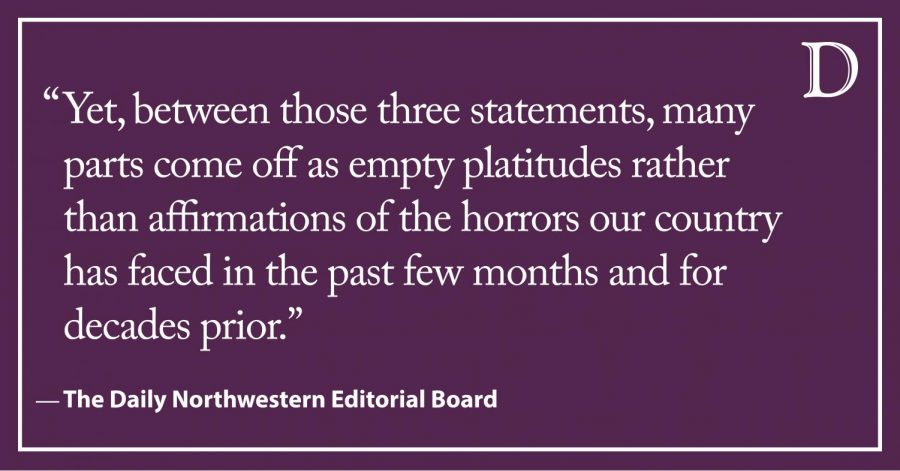The state of mental health resources at Northwestern has dominated campus dialogue this year and will likely culminate in a decision this month on whether and how to expand the staff at Counseling and Psychological Services. As administrators examine whether to implement CAPS’s strategic plan, which calls for four additional full-time therapists, demand for services is increasing among the student body. University President Morton Schapiro declared at the “Conversations with the President” forum April 25 that there is “no limit to how much we would spend to ensure the health and safety of our students.” Although the support for improved mental health services from top members of the University’s administration is admirable, The Daily urges them to fulfill their promises and put into practice substantial and effective programs for students.
As this editorial was being written, the NU community was notified of the death of McCormick sophomore Dmitri Teplov. The cause of death remains unknown, but Evanston police say a preliminary investigation indicates it was a suicide. If this turns out to be the case, then Teplov’s death should increase the urgency with which these measures should be implemented.
Each of the proposed additional four full-time therapists would take on a specific task. The first would work specifically to address the needs of minority students, while a second staff member would facilitate the peer-to-peer mentoring program NU Listens. A third would seek to expand the Question-Persuade-Refer Suicide Prevention Gatekeeper Training Program, which teaches students how to question a person about suicidal thoughts, persuade them to seek help and refer them to professional resources. The last additional staff member would facilitate long-term care for students, expanding upon the 12 free sessions that CAPS currently offers and providing additional counseling opportunities.
Though these proposals should be put into practice immediately, administrators must take great care to ensure their long-term effectiveness. For one, the therapist who works with minority students must be highly trained to deal with the specific issues facing those communities. Additionally, NU Listens must be highly monitored to ensure the utmost degree of confidentiality among students, and those who participate in the program should undergo extensive training in order for their services to be as effective as possible. Administrators and student leaders should also offer initial QPR training sessions to the maximum number of students, as well as refresher courses to keep the techniques at the top of everyone’s minds. Finally, administrators need to find a way to ensure long-term care will not just be present, but also useful. It should not just repeat content of the 12 free sessions, but rather build upon what was initially covered so that students can reap the greatest benefits.
But even with all of the work to be done, The Daily recognizes the efforts of CAPS to address the shortages within the University’s mental health care system and urges students to do the same. CAPS has obstacles to overcome, specifically financial ones. Administrators are working to improve the status quo, and their work should not go unnoticed.
The Daily hopes CAPS and the University can implement the measures outlined in its strategic plan, as well as address other mental health-related problems on campus. In the wake of the death of Weinberg junior Alyssa Weaver, who took her own life in the fall while studying in London, administrators should consider strengthening the mental health-screening process for students going abroad. This and other measures should be of utmost importance to administrators, as they will be key to improving student safety and happiness. Those in charge should be taking every step possible to ensure not just that these programs are implemented, but that they also possess quality and longevity.










